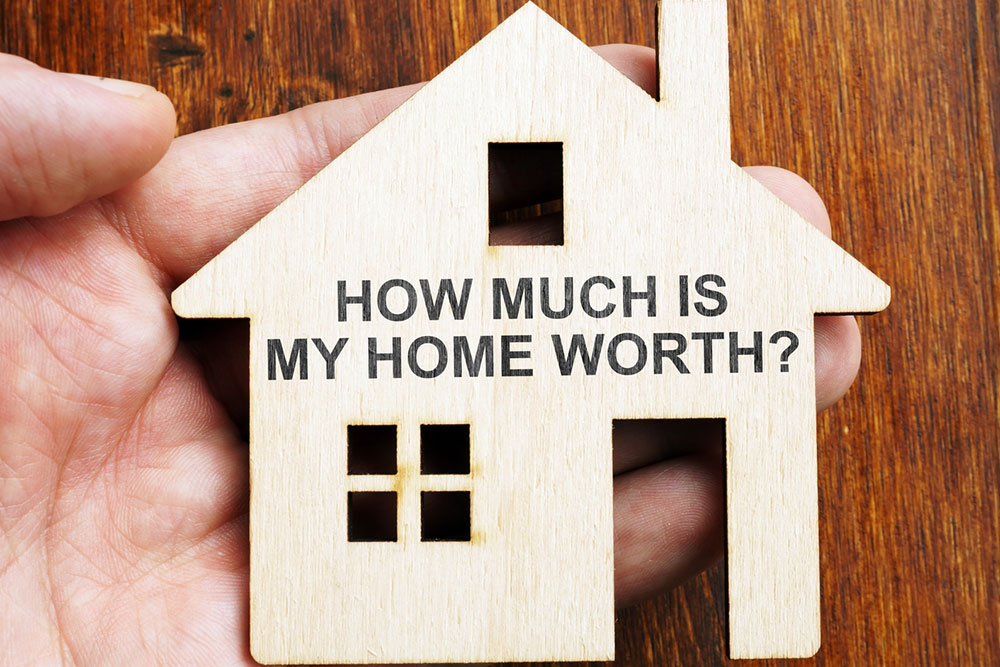Comprehensive Guide to Accurately Valuing Your Home in Today’s Market
Learn detailed strategies to accurately determine your home's market value using recent sales data, expert insights, and market trends. This comprehensive guide helps homeowners set competitive prices, improve home value, and ensure successful sales by understanding key valuation methods and local market dynamics.

Comprehensive Guide to Accurately Valuing Your Home in Today’s Market
Deciding to put your property up for sale is one of the most significant milestones in a homeowner's journey. One of the critical ingredients to a successful sale is setting the right price. An accurate property valuation not only attracts potential buyers but also ensures your home is competitively priced in the current real estate landscape. The central question many homeowners face is, “What is my home truly worth?” To answer this effectively, it’s essential to undertake a comprehensive assessment of the property’s actual market value using proven methods and strategies. This guide aims to walk you through the most effective ways to determine your home’s market value, leveraging data, expert insights, and market trends.
The foundation of an accurate home valuation starts with research into recentproperty sales within your neighborhood. This process involves analyzing comparable properties—homes similar in size, style, and features that have sold nearby within the last six months. Recognizing comparable properties is essential because it provides a realistic benchmark for your home’s worth, accounting for local market conditions. When selecting these comparables, consider factors such as property location, total square footage, number of bedrooms and bathrooms, year of construction, lot size, and any distinctive features or upgrades. The closer these properties are to your own home, the more accurate your estimate will be.
Beyond local sales data, utilizing online real estate platforms is invaluable. Sites like Zillow, Realtor.com, or local listing services offer extensive information about recent sales, current listings, and market trends. These tools enable you to review active listings to understand what buyers are currently looking for and the prices they are willing to pay. Comparing your home to current listings gives insight into the competitive landscape and helps identify pricing gaps or opportunities.
Consulting with real estate professionals can significantly refine your valuation. Experienced agents possess insider knowledge of neighborhood trends, recent sales, and buyer preferences that data alone might not reveal. An agent can perform a Comparative Market Analysis (CMA), which provides a detailed estimate based on recent sales and active listings, tailored specifically to your property. Additionally, visiting your local Land Registry or property records office can grant access to official sales data, further supporting your valuation process.
After gathering sufficient data, establish a price range by comparing multiple comparable homes. Typically, analyzing three to five properties that closely resemble your home will help you gauge a realistic valuation. This range should include the highest and lowest sale prices among those comparables, giving you a spectrum within which your property might reasonably fall.
When estimating your home’s value, several essential factors must be taken into account. Location remains paramount, as properties in desirable neighborhoods with convenient access to amenities, schools, and transportation tend to command higher prices. The physical condition of your property, including recent renovations, maintenance, and overall appeal, also significantly impacts worth. Unique features such as a modern kitchen, energy-efficient appliances, or landscaped gardens can add value, whereas structural issues or outdated fixtures may detract from it.
Analyzing current market trends and demand levels is equally important. A seller's market—where demand exceeds supply—may allow for higher pricing, while a buyer's market might necessitate more competitive pricing. Future developments in your area, infrastructure projects, and community plans can further influence property values positively or negatively.
Current Market Conditions: Conduct local market research on recent sales, inventory levels, and price trends to understand current valuations.
Expert Input: Consult experienced real estate agents or appraisers for specialized valuation insights.
Pricing Range Development: Use data from high and low comparables to establish an appropriate price spectrum.
Valuation Techniques: Apply methods like Comparative Market Analysis, income approaches, or replacement cost calculators for comprehensive estimates.
Setting the Right Price: Aim for a strategic listing price that balances competitiveness with profitability, based on detailed analysis.
To refine your home’s valuation further, consider these best practices:
Gather Multiple Data Points: Collect and compare a variety of recent comparable sales to understand current market dynamics.
Evaluate Price Extremes: Look at both high and low sales to identify what features or conditions influence value.
Invest Wisely in Improvements: Small upgrades—such as new paint, modern fixtures, or energy-efficient systems—can enhance appeal and value without overspending.
Assess Local Infrastructure and Development: Accessibility, neighborhood safety, upcoming transportation projects, and community growth influence market potential.
Make Strategic Upgrades: Focus on improvements that provide genuine value addition, appealing to buyers and increasing market interest.
Be Mindful of Over-Improvement: Excessive renovations or luxury additions might not yield proportional increases in sale price, leading to inefficient investment.
Plan for Long-term Trends: Consider local land value changes, market cycles, and economic factors that may impact your home’s future worth.
Starting your property valuation process with clear goals, comprehensive data collection, and expert advice equips you to set an optimal asking price. Maintain detailed records of property upgrades, monitor local market trends regularly, and be adaptable in your pricing strategy. This meticulous approach ensures you accurately gauge your home’s market value, facilitating a successful sale at the right price.





